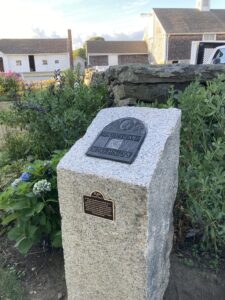 Casey Farm
Casey Farm
Indigenous Land and Enslaved Peoples Acknowledgment

Farms are excellent places to delve into what we owe and what we should own up to in our relationship with all people who worked the land. The land we now cultivate was cultivated by the Narragansett people and their ancestors for millennia and brutally taken from them through force and unfair transactions. Colonists of European descent found land that had been kept clear through the Indigenous practice of controlled burning so that the Narragansett people could raise and gather a healthy range of foods, land sadly cleared of so many people through disease, war, and enslavement brought on by contact with Europeans. Colonists viewed the open grassland as an opportunity to transplant their way of life in England that relied on grazing domesticated animals and sowing non-native crops, altering the ecosystem.
The same colonial and racist attitudes that dispossessed Indigenous people led to the kidnap, sale, oppression, and forced labor of African people, Indigenous people, and people of mixed backgrounds. The economy of this area and the success of this land were dependent on the labor of enslaved people and the displacement of Indigenous people, allowing the property to be passed down through the generations and eventually donated to Historic New England.
We still benefit from this history of cultivation tied to oppression even as we strive to enlighten ourselves and our visitors about it, and as we work toward inclusion, diversity, equity, and accessibility through our organization.
A more complete exploration of this farm’s reliance on the institution of slavery is found at the website for Rhode Island Slave History Medallions: https://rishm.org/washington-county/north-kingstown/casey-farm/